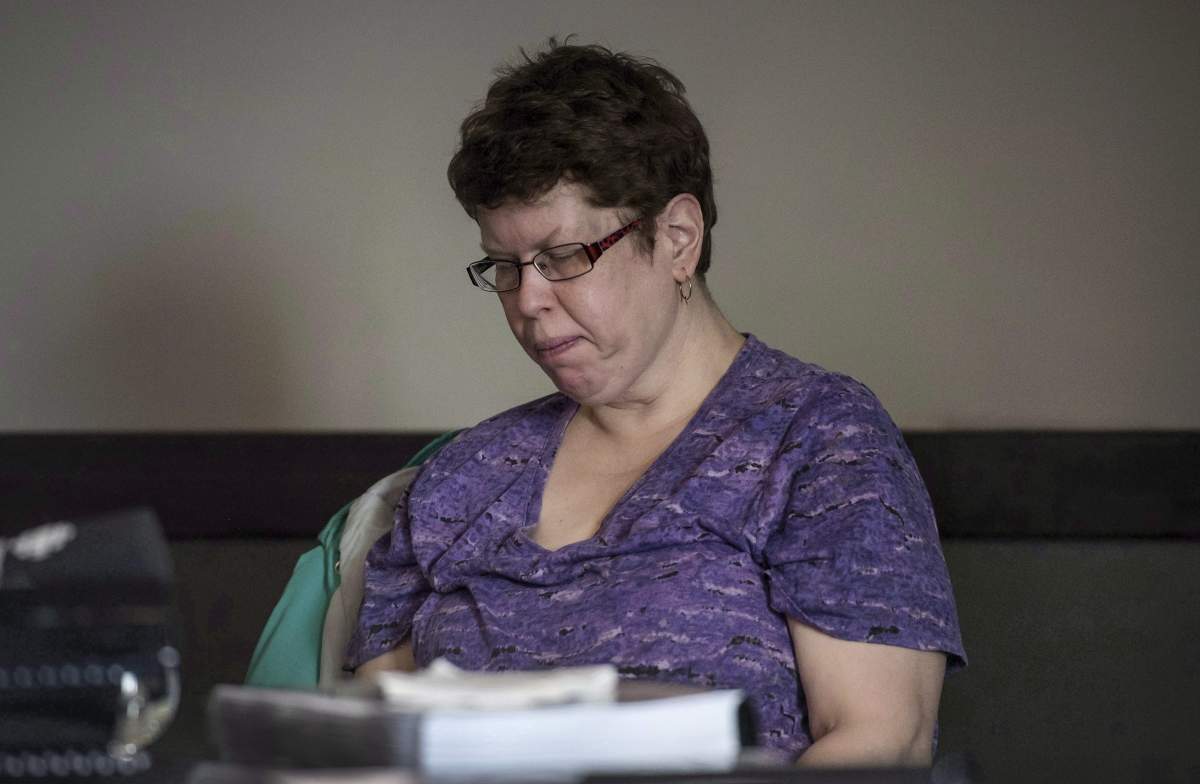The author of a study that sounded an alarm over confining Nova Scotians with intellectual disabilities in a psychiatric ward has testified the “incarcerated” residents were denied their human rights and good care practices.

Dorothy Griffiths gave her evidence via video conference last week at a human rights inquiry considering whether the human rights of Joey Delaney, Beth MacLean and the late Sheila Livingstone were violated by confining them in psychiatric wards or hospital-like settings rather than a home in the community with appropriate care.
Griffiths is a nationally recognized expert in the care of people with so-called “dual diagnoses” of intellectual disabilities and mental illness, and she has participated as a consultant in the closures of institutions and transfer of residents into Ontario small options homes.
In 2006, she and Dr. Chrissoula Stavrakaki delivered a report to the Nova Scotia Hospital that concluded it was “verging” on violating the basic rights of people with disabilities by leaving them in locked-door psychiatric unit for years after they’d been medically discharged.
READ MORE: N.S. inquiry told of slow change to support those with disabilities
The report never surfaced in public until it was mentioned when the human rights complaint was filed in 2014 and then was discussed during testimony this month.
Griffiths stood behind her findings during her appearance last Thursday.
“When you look at our basic rights and freedoms, we are supposed to not be incarcerated without due process and without a reason,” she said.
“There was no reason for these individuals to be incarcerated within a psychiatric hospital in a locked ward without access to their community or family …These individuals were not acting in a way that the staff indicated were problematic in terms of danger to self or others.”

Get weekly health news
During the inquiry, government lawyers have raised instances when MacLean and Delaney had medical problems or outbursts of aggressive or self-injurious behaviour that required treatment at the hospital.
However, Griffiths cited peer-reviewed studies indicating behavioural problems in institutions are often the result of out-of-date approaches that relied heavily on medicating patients.
One study by researchers Ian Grey and Richard Hastings indicated most negative behaviours were the result of “social and environmental issues and only a limited number the direct byproduct of a distinct mental disorder.”
Griffiths said the system in Nova Scotia developed into “a kind of Catch-22,” where people who had intellectual disabilities and mental illnesses bounce between the health system and the Department of Community Services.
WATCH: Disability advocates say housing for those with intellectual disabilities is in crisis

In her testimony, she said officials occasionally would negotiate “trades” that had little to do with the well-being of a person with a disability who had been admitted to the Emerald Hall psychiatric war.
“They’d say this individual no longer needs Emerald Hall, but we have somebody who really does, so we’ll take him out and you take someone in. But that flies in the face of trying to find the appropriate and matched place for the individual,” she said.
At the time of the 2006 report, about half of the 19 patients at Emerald Hall were staying there against their own wishes.
During the hearing, testimony has stated there are currently about seven people who’ve been at the facility for years, despite being medically discharged.
According to the Nova Scotia Health Authority, about 82 people out of 270 in mental health facilities “no longer required hospital admission” across Nova Scotia, and were awaiting placement in community-based care. Details on their diagnoses were not available.
In Tuesday’s budget, the Liberal government announced that there is an additional $2.1 million to help create small options homes and group homes.
Joe Rudderham, executive director of the province’s Disability Support Program, also noted that there’s $16.2 million in additional funding to support the transitions, with about $10 million to cope with a fresh influx of people in the province’s programs.
READ MORE: Nova Scotia argues that supported housing for disabled is not a right
As of earlier this month, there were 504 people awaiting some form of support from the Department of Community Services, and 1,024 people awaiting a transfer to a different housing option or location.
Rudderham said the goal for 2018-19 is at least 10 new small options homes that will accommodate 40 people.
Dr. Brian Hennan, co-chair of the Community Homes Action Group, has argued in a recent letter to the province’s finance minister that the pace of creating new community homes is “glacial,” despite the province’s original promise in 2013 to set up a system of community-based homes.
The group recommended to the finance minister that to keep up with the pace of demand, an investment “in at least 25 new small options homes each year for the next three years,” was needed.







Comments
Want to discuss? Please read our Commenting Policy first.